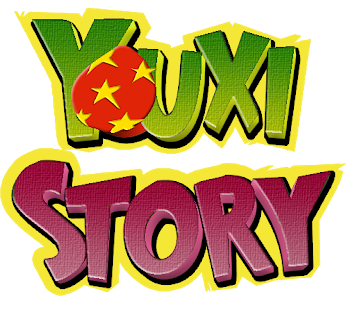In May, Games.QQ put out a list of classic video games produced in China, which included the Legend of Sword and Fairy (aka: Chinese Paladin) by Softstar Entertainment. First released in 1995, it became one of the most successful video game franchises in Taiwan and mainland China, even becoming a television series in 2005. Despite its domestic success, it has yet to see Western shores. A small group of foreigners are seeking to change this, however, according to an article by the South China Morning Post.
The article profiles some important figures in the fan-translation scene of Chinese video games, including Derrick Sobodash, who began doing amateur translation and coding as a hobby in 1996. He worked on translations for the game Legend of Sword and Fairy with two friends, and Heroine Anthem (2002) by himself. In 2006 he moved to China and began a full-time teaching job, limiting his ability to continue with his hobby. He decided to release his tools to the public, allowing other enthusiasts to pick up where he left off.
Though Sobodash worked independently (at best, with a few friends), Brandon Cobb worked with Taiwanese software company C&E to legally produce and distribute fully playable translations of their games. Cobb is president of Super Fighter Team, a start-up that was given the rights to a number of out-of-print titles by C&E (now no longer in the software business). SCMP writes, “The translations were sold for money and released in physical packaging in an effort to appeal to retro gaming enthusiasts – a rare occurrence in the fan translation world, but one made possible by the blessing of C&E.” Some of their re-released and fully translated games include Beggar Prince (1996), Sango Fighter (1993), Sango Fighter 2 (1995), and Super Fighter (1993).
Cobb was lucky in being able to contact the company that owned the games, acquiring the rights to those games and having a company to translate and re-release them. For Sobodash, “Because the patches are distributed for free online and require users to technically own a copy of the game first, Chinese companies are unaffected and usually unaware that the translations even exist.” In an interview with Hardcore Gaming 101, Sobodash also explained some limiting factors in the translation and dissemination of Chinese games, including the monopoly that Japan has on Western interest and attention:
I’ve encouraged not only Korean and Chinese translations, but any language other than Japanese. The groups Lakuuna and Revolve started some Korean-language projects, but today they are mostly dead. The obsession with Japan is [one of the] most dangerous limiting factors for the scene. It cuts off thousands of games from becoming potential projects…
Japan is the motherland of video games – but only when you disregard everything except console games. There is a lot of material out there in other languages; people on the internet speak these languages. The solution should be the translation scene. Even if you stay within Japanese, there are hundreds of games on dozens of systems still ignored by hackers as the emulators for those systems lack a debugger as convenient as ZSNES’s. This is a way for the scene to branch out and reach more people. If new ideas and new members stop entering a scene, it’s dead.


It is used primarily in Hong Kong and in overseas Chinese communities, so is usually written with traditional Chinese characters.Mandarin Interpreter
LikeLike
Sitting in the ashes of a ruined city without having received the Russian capitulation, and facing a Russian maneuver forcing him out of Moscow, Napoleon started his long retreat by the middle of October. At the Battle of Maloy aroslavets, Kutuzov was able to force the French army into using the very same Smolensk road on tttp://www.smartlation.com which they had earlier moved East and which had already been stripped of food supplies by both armies.
LikeLike
If you are looking for a reliable Chinese translation vendor to bridge the language divide with the Chinese speaking world, a reliable language translation service is your solution. Chinese translator
LikeLike
This directory is important because most of the restaurants can be located in it which makes it easier to locate them. Phoenix Chinese Restaurant
LikeLike